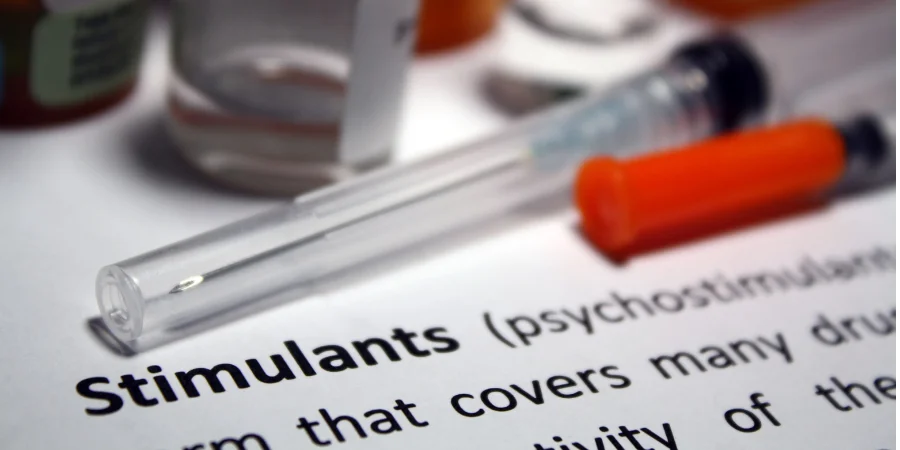
Written by:

Medically Reviewed by:
This Page was last reviewed and changed on January 3rd, 2023
Stimulants addiction
Addiction to stimulants, such as Adderall and Focalin is possible, especially if you have felt pressure trying to meet the demands of daily life; you may feel you need to work harder, listen better or achieve more. It is completely human to feel overwhelmed with personal or professional tasks but let us reassure you that abusing stimulants is not the answer. The side effects associated with continuous use of stimulants can become counter-effective to your accomplishments and goals. This page will expand on the effects of stimulants, the warning signs of stimulant addiction and how best to overcome stimulant dependence.

What are stimulants?
Stimulants are drugs that help your brain transmit messages at a faster pace, helping you move faster and think more quickly. Due to the wide range of drugs that are considered stimulants, some stimulants are available through prescription, some through under-the-counter, illegal methods, some over-the-counter, and some are available in common shops around the world. All forms of stimulants are addictive, especially consumed in large quantities. Three of the most commonly abused prescription stimulant drugs are:
It’s worth mentioning that it is easier and possibly more dangerous to become addicted to other stimulant drugs (that don’t require a medical prescription), such as nicotine, and illicit drugs like amphetamines and cocaine.
What is stimulant addiction?
Addiction, generally, stems from using drugs or substances as coping mechanisms for underlying issues that you may not be able to deal with. Whether it is something out of your control or that you are unable to deal with at the moment, it may be that you have sought comfort within a mind-altering substance or drug such as a stimulant drug. Thus, continuous use will inevitably lead to addiction to stimulants.
What are the key signs of stimulant addiction?
Given the danger of stimulant addiction and the availability of stimulant drugs around the UK, looking out for the signs or effects will help you to become aware of your stimulant usage.
Mental signs of stimulant addiction
- Extended periods of euphoria
- Increased self-confidence
- Manic behaviour
- Increased aggressiveness
- Experiencing cravings

Physical signs of stimulant addiction
- Severe weight loss
- Increased heart rhythm
- Dilated pupils
- High blood pressure
- Insomnia
- Increased tolerance to stimulants
It may be best to keep an eye out for these signs in yourself or others, as the risk of taking high doses of stimulant drugs outside the scope of a prescription, as well as the effects of stimulant abuse, could lead to having seizures, slipping into a coma, or in extreme cases, death.
How stimulant addiction works
A person may temporarily use stimulants as a way of keeping their energy or concentration levels up. Although they may have every intention of quitting at some point, unbeknown to them, they could develop an addiction to stimulants. This is due to biological chemicals being altered by a process called homeostasis, causing the body to crave stimulants daily.
Potential causes of stimulant addiction
Stimulant addiction is an affliction that rears its head at different times for different people, but there are some common factors that may contribute to these behaviours.
- Loss
- Breakups or divorce
- Financial difficulty
- High pressured jobs
- Family life pressure
- Pressure with exams or studies
Addressing the root cause of stimulant addiction in a healthy way will ensure that you never have to go through anything like stimulant addiction again.
How to overcome an addiction to stimulants
Based on the dangers that you’ve just read, as well as knowing how easy it is to become addicted to stimulant drugs, you may be considering whether it’s time to get help.
If you find that you are experiencing any signs or effects of stimulant abuse, we recommend that you contact your GP or local health professional.
Your doctor will most likely advise you to get professional help for stimulant addiction by attending stimulant rehab. At Primrose Lodge, we are medically licensed to help people recover from substance addiction, ensuring you can physically rid yourself of stimulants via a safe, controlled stimulant detox, in a manner that will not put you in any further danger.
We will help you to address the underlying issues within your mind that has led you to seek comfort within stimulants.

What you can do next
Primrose Lodge believes that stimulant addiction is an affliction that you can come back from. This will not only increase the quality of your life, but also benefit those close to you. Often our loved ones feel the pain of addiction just simply by watching someone close to them fall prey to substance abuse. By involving them in your progress, you can begin to heal as a unit.
The first step is always the hardest, but as difficult as this stage may be for you, rest assured we will be there to help. At Primrose Lodge, we will provide you with the tools and environment that you need to make your recovery journey as comfortable as it can be.
So, contact us today, and we’ll help you move on to a new chapter of your life, free from stimulants.
